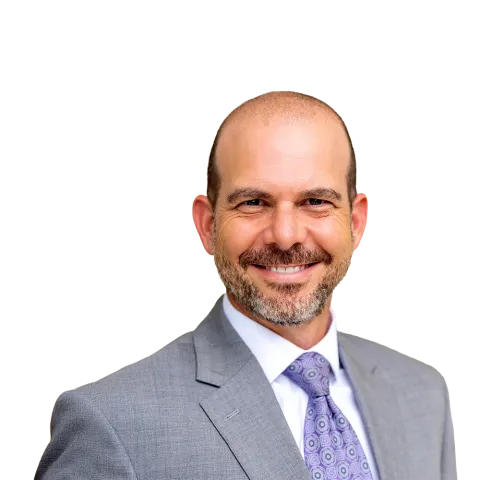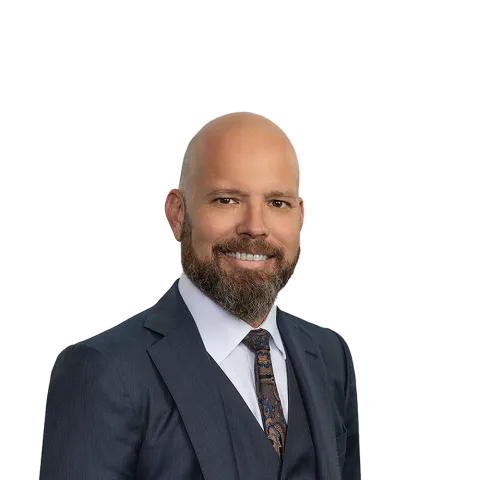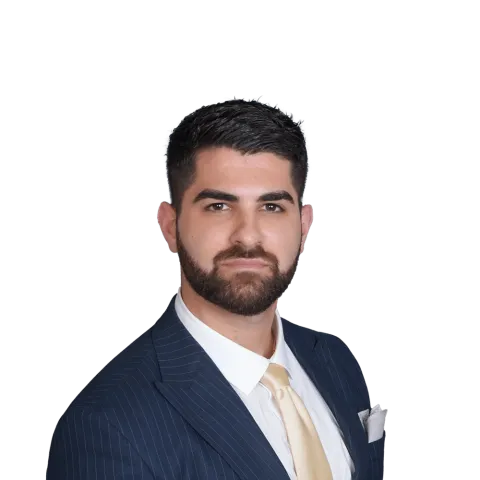Results may vary depending on your particular facts and legal circumstances. The attorney featured above is licensed in Florida. For a full list of attorneys in your state please visit our attorney page.
INSURANCE ATTORNEY IN GAINESVILLE
Insurers sometimes delay, underpay, or deny valid claims. We fight to get what you deserve.
Results may vary depending on your particular facts and legal circumstances. The attorney featured above is licensed in Florida. For a full list of attorneys in your state please visit our attorney page.
Insurance Claim Lawyers
Gainesville, Florida, has a small but growing population and is considered to be one the best places to live in the state. Home to the University of Florida, the city also features fantastic cultural and business opportunities which attract young professionals and families. Gainesville offers residents mild year-round weather and exceptional health centers, making it attractive to retirees too.
While life in Gainesville certainly has many upsides, individuals living in this area of northern Florida may find themselves injured or otherwise harmed, which will warrant the need to file an insurance claim for compensation. When you and an unsympathetic insurance adjuster don't see eye to eye, it might be time to lawyer up to reinstate a fair playing field.
When to Hire a Lawyer for an Insurance Claim
You might be wondering if you should hire a lawyer for an insurance claim. Typically small standard claims get settled without a lot of issues. However, when you have a significant claim, which means both sides have a lot to win or lose, you might see more of a problem getting the results you expect. Some examples of why you may need to hire a lawyer for your insurance claim are:
- Claims where the fault is difficult to establish
- Costly or complicated claims
- Large claims such as in the event of major property damage or extensive personal injury
- Claims where you're having problems with the insurance adjuster from the get-go
- When the insurance policy language is difficult to interpret
Claims that fall under the above will usually be best dealt with through a lawyer before you contact the insurance company. Consultations at Morgan and Morgan are free, so there's nothing to keep you from seeking legal advice before engaging with the insurance company. Suppose you don't have much prior experience with insurance claims. In that case, you could inadvertently hurt your case by saying the wrong thing.
It's crucial to remember that the insurance company's end game is to make money, and they can't do that if they're paying out large sums for claims. You may experience issues even if the claim is valid, and sadly, even if it's your own insurance company. You may have trouble getting a claim paid on a policy you've been paying premiums on for years.
100,000+ Five Star Reviews
The reasons why clients trust Morgan & Morgan.
Results may vary depending on your particular facts and legal circumstances. Based on select nationwide reviews.
Our Results
How It Works
Unsure what to do next? With 35 years of experience, our personal
injury lawyers will guide you every step of the way.

Contact Us 24/7 - It’s Free
Start your claim

Meet your dedicated attorney
Meet the attorneys

We fight for more
Learn more about the case process
Results may vary depending on your particular facts and legal circumstances. The attorneys shown in these photos may not be licensed in your state. To find an attorney licensed in your area, please visit our attorney page.
Local Care
Backed by America’s Largest Injury Law Firm.
$25 Billion
Recovered for clients
nationwide700,000+
Clients and families
served1,000+
Attorneys across
the country1
Click may change your life
The attorney featured above is licensed in Florida. For a full list of attorneys in your state please visit our attorney page.
Results may vary depending on your particular facts and legal circumstances.
Learn More
Injured and not sure what to do next?
We'll guide you through everything you need to know.
How Do I Fight an Insurance Company?
You should know that you can sue your insurance company if they violate the insurance policy's terms. Typical violations are not paying for accurately filed claims, delaying claim payments, and making bad faith claims. Fortunately, there are laws that protect consumers from fraudulent insurance claim tactics like these.
When you're dealing with property damage, injuries, or even the death of a loved one, having to fight an insurance company for what is justly owed to you can be an overwhelming burden. Fortunately, you have Morgan and Morgan's insurance claim lawyers who are here to help. Suppose we find your insurance company is engaging in underhanded dealings. In that case, we can help you sue them to get the compensation you need.
Why Do Insurance Companies Deny Claims?
As previously stated, insurance companies are in business to make a profit. Because of this, they have a warehouse of reasons to deny your claim. Here are some of the most common reasons your insurance claim may be rejected:
Claim filing errors: Insurance companies have their own procedures and timelines for filing claims after an incident. Some deadlines are as short as 24 hours.
Insurance fraud: Insurance fraud is more common than you might think. If an insurance company suspects fraud, your claim will be denied, and you may be referred to criminal or civil proceedings.
Lack of coverage: The insurance company may deny your claim if they feel your claim isn't covered under the policy. A lawyer can determine if the exclusion they are pointing out is valid. Luckily, when vaguely worded insurance policies are disputed, it usually ends up in favor of the policyholder.
Application errors: Your claim could be denied if you misrepresented anything in the insurance policy application.
Bad faith insurance claim denial: Don't expect an insurance company to admit they are operating in bad faith, but when they are delaying, offering poor or no reasons for the denial, or trying to confuse you with legalese, they might be operating in bad faith.
When Should I Sue an Insurance Company for a Denied Claim?
Many laws, both state and federal, govern the insurance industry. They are required by law to uphold the terms of the contract. Insurance companies have a duty to the consumer not to use any of the following tactics to deny a claim:
- An incomplete or delayed investigation of the claim
- Denying payment when liability is plainly apparent
- Failing to approve or deny a claim in a reasonable amount of time
- Denying a claim with insufficient or no reasoning behind the decision
- Failing to defend you in a liability dispute when your liability policy covers a claim
This list is not exhaustive, and of course, we know every claim is unique, so if you feel your claim has been wrongly denied, we may be able to sue them to win the compensation you're owed. It's better to contact us quickly if you're experiencing issues with your claim.
What Kind of Legal Action Is Allowed in Florida Against Insurance Companies?
Floridians can take legal action against an insurance company for breach of contract, which is common law. A breach of contract action requires proof that the insurance company was bound by contract to pay for damages that the policyholder incurred and failed to abide by the terms of the policy. Unfortunately, a breach of contract action does not allow for attorney fees and court costs.
However, Florida legislators have provided further legal recourse if the insurance company engages in bad faith tactics. Suppose the insurance company failed to settle promptly, fairly, and honestly or failed to pay in a reasonable amount of time when liability was clearly demonstrated. In that case, you could sue for bad faith. This type of legal action does allow for the recovery of attorney's fees and court costs if successful.
What Kind of Legal Action Is Allowed in Florida Against Insurance Companies?
Floridians can take legal action against an insurance company for breach of contract, which is common law. A breach of contract action requires proof that the insurance company was bound by contract to pay for damages that the policyholder incurred and failed to abide by the terms of the policy. Unfortunately, a breach of contract action does not allow for attorney fees and court costs.
However, Florida legislators have provided further legal recourse if the insurance company engages in bad faith tactics. Suppose the insurance company failed to settle promptly, fairly, and honestly or failed to pay in a reasonable amount of time when liability was clearly demonstrated. In that case, you could sue for bad faith. This type of legal action does allow for the recovery of attorney's fees and court costs if successful.
Gainesville Attorney for Home Insurance Claims
While Gainesville, Florida, is a spectacular place to live due to the weather, mother nature can unleash some tremendously powerful forces that can wreak havoc on your home. Not to mention possible home damage from unfortunate fires, theft, vandalism, mold, pipe leaks, and even sinkholes. Here's how our home insurance claim lawyers can help with these issues.
Sinkholes - It's no secret that Gainesville homeowners are at risk for sinkholes. The entire state rests on porous limestone soil. This type of claim is perhaps the most difficult to navigate on your own because of the terminology on your policy. The Florida Department of Financial Services states that homeowner insurance policies for Florida residents include "catastrophic ground hole" coverage. One of our lawyers may be able to use your policy language to argue liability.
Mold - Mold can be dangerous to your health. Mold coverage can be tricky because it must be caused by another "covered peril" such as lightning, fire, windstorms, and hail. Our home insurance claim lawyers will be able to guide you as to whether the circumstances under which your home developed mold should be covered.
Fire - Having a house fire is a terrifying experience. You may be displaced from your home and have lost precious heirlooms and possessions. Our lawyers can help direct you on how to recover the most for your damaged property and lost possessions.
Theft - You can feel violated when someone breaks into your home and steals your possessions. Our lawyers will work with you to come up with a strategy to ensure you're compensated for your stolen items.
Pipe leak - Pipe leaks are usually covered by your insurance policy. However, that won't stop the insurance company from trying to deny the claim. They may argue that a lack of maintenance caused the damage or that it was done over a long time because of an undiscovered leak. We will work with you to prove maintenance was not the issue.
Storm/Wind/Tornado - Storm damage in Florida is common. However, how storm, wind, tornado, and hurricane coverage apply to your situation may be complicated. Our lawyers can guide you on getting the maximum under your insurance policy limits and argue for required repairs when the insurance adjuster says, "no."
Gainesville Lawyers for Car Insurance Claims
Florida's no-fault insurance laws make it, so each party involved in a car accident pays for their own medical bills. But what if your injuries are more severe and thus more costly than what your own personal injury protection (PIP) policy covers?
Florida laws do allow car accident victims to sue the at-fault party's insurance company or the at-fault driver when their injuries or "damages" meet a certain threshold which is:
- Significant and permanent loss of an essential bodily function.
- Other than scarring or disfigurement, permanent injury is within a reasonable degree of medical probability.
- Significant and permanent scarring or disfigurement.
- In the event of a death
Suppose your injuries meet any of these requirements. In that case, you may also sue the at-fault party for pain and suffering, inconvenience, and mental anguish, which is not available under the no-fault law.
Valuable Tips for Suing Insurance Companies for Denied Claims
Anytime you go up against an insurance company, you're going to need to maintain and develop evidence. Here are some valuable tips to keep in mind:
Contact Morgan and Morgan insurance claim lawyers for a free case evaluation. The bedrock of our 30+-year-old company is personal injury law. Personal injury, more often than not, involves insurance companies. With our experience, we know Florida laws and how they will impact your claim. We also have tremendous insight into how insurance companies work.
Most importantly, we understand how to negotiate a favorable settlement. We know when they are offering a reasonable settlement and also when to push for more. None of your compensation should be left on the table. That's why we will fight hard to protect your rights.
Document all conversations, emails, texts, and direct mail with the insurance company. If you're talking on the phone, notate the date, contact name, time, and what was included in the conversation. Make sure to keep your composure at all times. Keep all emails and texts.
Keep an honest track record of all expenses by saving medical bills, invoices, bills, receipts, estimates, and lost wages.
Maintain records of valuables lost, property damage, and personal injury. Take pictures or videos immediately after any instance of damage or harm.
It's important to remember that just because an insurance company says no to your claim or offers an unreasonable settlement, it's not the end of the road. You have rights, and we're here to defend them. Get in touch with us today.
























